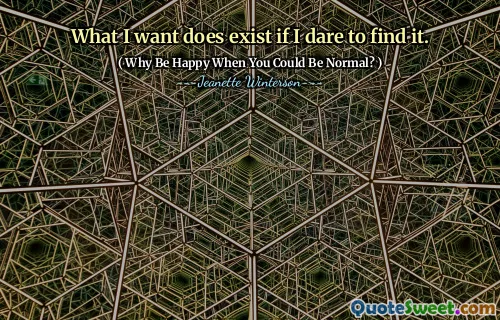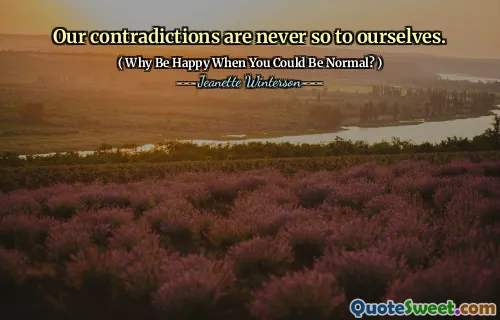
Our contradictions are never so to ourselves.
This quote eloquently captures the complexity of human self-awareness and internal coherence. It suggests that the contradictions we harbor within our psyche don't seem contradictory from our own perspective. Essentially, we have the unique ability to rationalize and integrate opposing beliefs, desires, or actions in a way that feels consistent internally, even though it might appear contradictory from an external viewpoint.
On reflection, this reveals much about the nature of identity and self-acceptance. Each individual holds multitudes, often encompassing paradoxes that create a rich, complex personality. The quote hints that self-deception is less about dishonesty and more about the brain's flexibility to reconcile opposites to preserve our sense of self. This might also explain why people struggle to see their own flaws or inconsistencies—because within their own mind, those contradictions are smoothed over or reframed to align with their internal narrative.
Moreover, it reflects the challenge of truly understanding oneself. Because we see our contradictions through the lens of experience, context, and emotions, they seem logical and necessary rather than conflictual. This delicate balance is part of human psychological resilience but also a potential source of internal conflict when confronted with truth or external scrutiny.
Ultimately, the quote encourages empathy towards oneself and others. Recognizing that internal contradictions feel unified to individuals invites compassion and patience. It reminds us to embrace the complexity within ourselves and those around us, understanding that a seemingly contradictory stance is often a coherent and deeply personal worldview.









